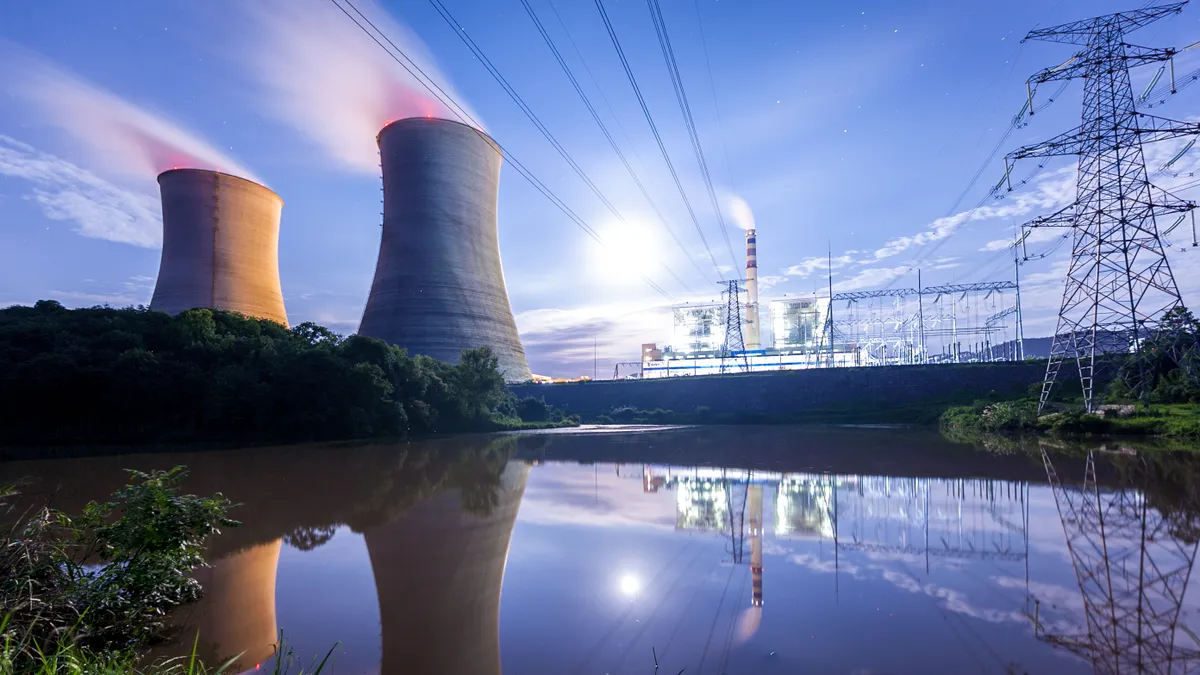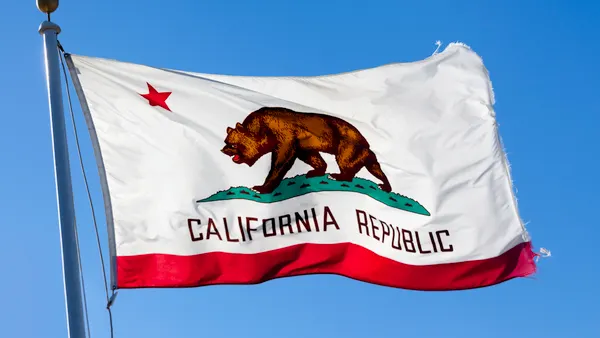Dive Brief:
- The U.S. Nuclear Regulatory Commission is undertaking an agency-wide effort involving nearly all of its branch offices to implement the Accelerating Deployment of Versatile, Advanced Nuclear for Clean Energy Act, NRC staff said Wednesday in a public meeting.
- In a public comment session following a staff presentation that characterized the ADVANCE Act as an opportunity to improve the agency’s operations, industry stakeholders, advocates and representatives from other federal branches offered feedback on issues including the NRC’s licensing process for fuel cycling facilities, its oversight of spent reactor fuel and its risk assessments of advanced reactor technologies.
- “We recognize the importance of [enabling] the deployment of new nuclear technologies … [but the NRC’s] underlying safety and security mission has not changed,” NRC Special Assistant for ADVANCE Act implementation Mike King said in the meeting.
Dive Insight:
President Biden signed the ADVANCE Act in July after it cleared the U.S. House of Representatives and Senate with overwhelming bipartisan support.
The ADVANCE Act directed the NRC to update its mission statement to clarify that the agency should not “unnecessarily limit” civilian use of nuclear technology. It also relaxed restrictions on foreign ownership of certain types of licensed nuclear facilities, authorized continued international coordination on nuclear licensing and technology, implemented new requirements related to nuclear fuel, established a nuclear energy traineeship program and implemented additional hiring and pay authorities for the NRC, according to the staff presentation.
The act further directed the NRC to enhance its nuclear technology licensing process by developing procedures for “efficient, timely, and predictable license application reviews” and for expedited reviews of qualifying license applications, reducing hourly fees for advanced reactor applications, establishing a regulatory framework for fusion technology, developing “strategies and guidance” for nuclear microreactors and assessing licensing review processes for proposed reactors on brownfields and former fossil-fuel power plant sites, the presentation said.
In the three months since the ADVANCE Act became law, the NRC has created 20 interoffice teams across “nearly all” of its 26 offices to address more than 30 distinct actions related to the act, King said in the meeting.
“We have been very busy behind the scenes [but are] still very early in our implementation,” King said.
The NRC expects its workload to grow significantly in the coming years due to the ADVANCE Act’s directives, first-time license applications from advanced nuclear technology companies, and staff work related to two announced nuclear power plant restarts at the Palisades and Three Mile Island generating stations, King said. The agency could receive as many as 25 power uprate requests totaling 1.5 GW of incremental new generating capacity by 2030, he added.
Several ADVANCE Act directives have Congressionally-mandated completion or status-reporting deadlines, according to the staff presentation:
- January 2025: Modernization of nuclear reactor environmental reviews
- April 2025: Licensing considerations for non-electric uses of nuclear energy
- July 2025: Developing implementation guidance for the updated mission statement and reporting on the new fusion licensing framework
- October 2025: Fee changes for advanced reactor license applications (effective date)
- July 2026: Advanced nuclear fuel qualification and licensing
- January 2026 and July 2027: Streamlining microreactor licensing application reviews
- Multiple deadlines from July 2025 through July 2027: Modifying and implementing regulations related to nuclear facilities on brownfield sites
The NRC has announced public meetings on some of these initiatives, according to the staff presentation. These include non-electric uses of nuclear power (December 2024), the fusion licensing framework (October 2024, January and February 2025) and brownfield site regulations (November 2024).














